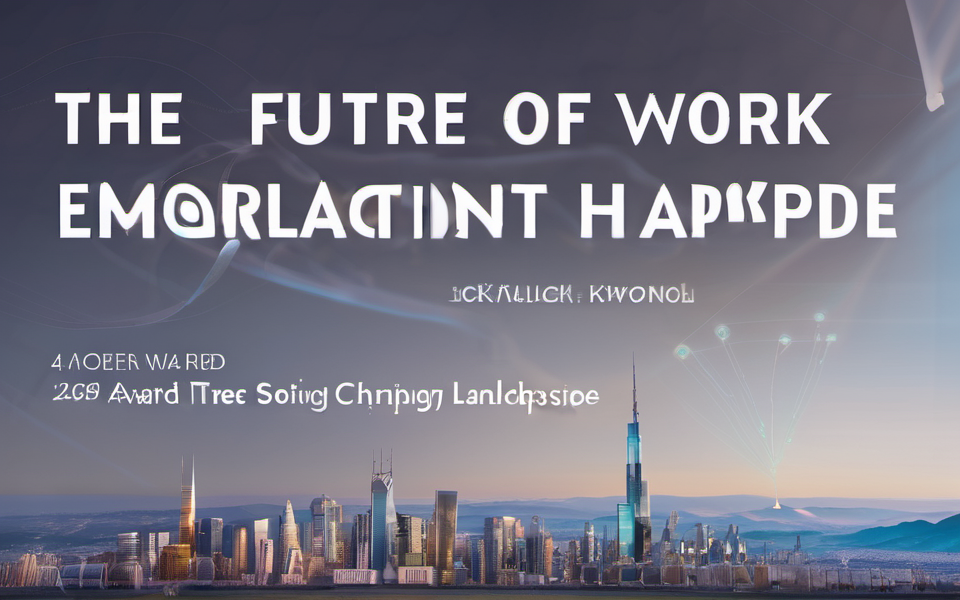Imagine a world where robots do your chores, AI writes your emails, and your job description is constantly evolving. Sound like science fiction? It’s the reality of the future of work!
The global employment landscape is undergoing a radical transformation, driven by a potent mix of technological advancements, regulatory shifts, and evolving market trends. It’s a whirlwind of exciting opportunities and unforeseen challenges, but one thing’s for sure: the future of work is being written as we speak.
The Rise of Automation and AI
Let’s face it, robots are coming for our jobs, and they’re not holding back. Automation and AI are making serious inroads in various industries, from manufacturing to finance to healthcare. This surge in intelligent automation isn’t just replacing routine tasks; it’s creating new job roles and completely reshaping traditional work models.
The Changing Nature of Work
The future of work is all about flexibility, agility, and remote work. We’re witnessing a seismic shift from traditional office environments to hybrid work models, where remote and on-site work seamlessly blend. Gig economy platforms are flourishing, empowering individuals to take charge of their careers and pursue flexible work arrangements.
Adapting to the New Normal: Skills and Training
This isn’t just about technology. To navigate the future of work, we need to upskill and re-skill. This means adapting our skills and knowledge to keep pace with evolving demands. It’s about acquiring digital literacy and mastering soft skills like critical thinking, problem-solving, and communication.
Regulations Shaping the Future of Work
Governments worldwide are stepping in to shape this changing landscape. Labor laws are evolving to address issues like gig economy worker rights and the need for a more sustainable work-life balance. Regulation is playing a key role in fostering a more inclusive and ethical future of work, safeguarding employee well-being, and promoting responsible use of technology.
Key Trends Driving the Future of Work
- Artificial Intelligence (AI): From chatbots to automated workflows, AI is transforming industries and impacting various job functions. This is not just about replacing workers but about augmenting their capabilities and enabling them to perform higher-level tasks. AI-powered automation will create new opportunities while also challenging us to adapt and acquire new skills.
- Data-driven decision-making: In a data-saturated world, organizations are increasingly relying on data analytics to drive strategic decision-making. This calls for professionals with analytical skills who can interpret data and generate valuable insights.
- Cloud computing: With more and more organizations adopting cloud-based platforms, the demand for cloud computing skills is rising rapidly. From cloud architects to security engineers, there are numerous opportunities for professionals who can navigate the ever-expanding cloud landscape.
- Cybersecurity: As our reliance on digital technologies grows, so too does the risk of cyber threats. Cybersecurity professionals are crucial in safeguarding data and protecting against attacks, making this a critical skill set for the future.
- The Rise of the Gig Economy: The gig economy offers flexibility and independence for individuals, but it also comes with its challenges, such as job insecurity and lack of benefits. Regulations and policy changes are being implemented to address these issues and ensure a more equitable gig economy.
What the Future Holds: A Glimpse into Tomorrow’s Workplace
The future of work promises to be a world of opportunity and change. The workforce will be more diverse, geographically dispersed, and increasingly reliant on technology.
Challenges and Opportunities:
- Bridging the skills gap: Upskilling and reskilling the workforce is paramount. Education and training programs are needed to equip individuals with the necessary knowledge and skills for the changing job market.
- Creating a sustainable and inclusive workforce: Policies promoting work-life balance, flexible work arrangements, and accessibility for diverse demographics are vital for a future of work that benefits all.
- Evolving regulations: Regulatory frameworks will need to adapt to the evolving needs of the workforce. From worker protections to promoting ethical use of AI, the regulatory landscape will need to evolve alongside technological advancements.
Key Takeaways:
- The future of work is marked by automation, AI, and data-driven decision-making.
- We need to prioritize upskilling and reskilling to remain competitive in this dynamic environment.
- Regulations play a critical role in fostering a more inclusive, sustainable, and ethical future of work.
By embracing innovation and actively shaping the future of work, we can unlock new possibilities and create a better, more fulfilling working world for everyone. Let’s not be afraid of change; let’s welcome it, prepare for it, and shape it together!




